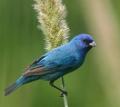 Correction....Hard to keep up with the changing numbers
Correction....Hard to keep up with the changing numbers
Ebola Toll Hits 2,917 Out of 6,263 Cases: WHO
Geneva | Sep 25, 2014
Ebola Toll Hits 2,917 Out of 6,263 Cases: WHO
The world's worst-ever Ebola epidemic has now infected nearly 6,300 people in West Africa and killed nearly half of them, according to World Health Organisation figures released today.
In its latest update, the UN health agency said a total of 6,263 people had been infected across five west African countries -- 44 per cent of them over the past three weeks -- and that 2,917 had died.
http://www.outlookindia.com/news/art...ses-WHO/861416
IF you are willing & obedient , you shall eat the good of the land: But if you refuse & rebel, You shall be devoured with the sword: for the mouth of the LORD hath spoken it. Isaiah 1:19, 20






 Reply With Quote
Reply With Quote Rachel Graham @rachels_aria
Rachel Graham @rachels_aria  Adia Benton @Ethnography911
Adia Benton @Ethnography911  Crawford Kilian @Crof
Crawford Kilian @Crof  Martin Enserink @martinenserink
Martin Enserink @martinenserink 
 Ian M Mackay, PhD @MackayIM
Ian M Mackay, PhD @MackayIM 
 Fron Jackson-Webb @Fronj
Fron Jackson-Webb @Fronj 







